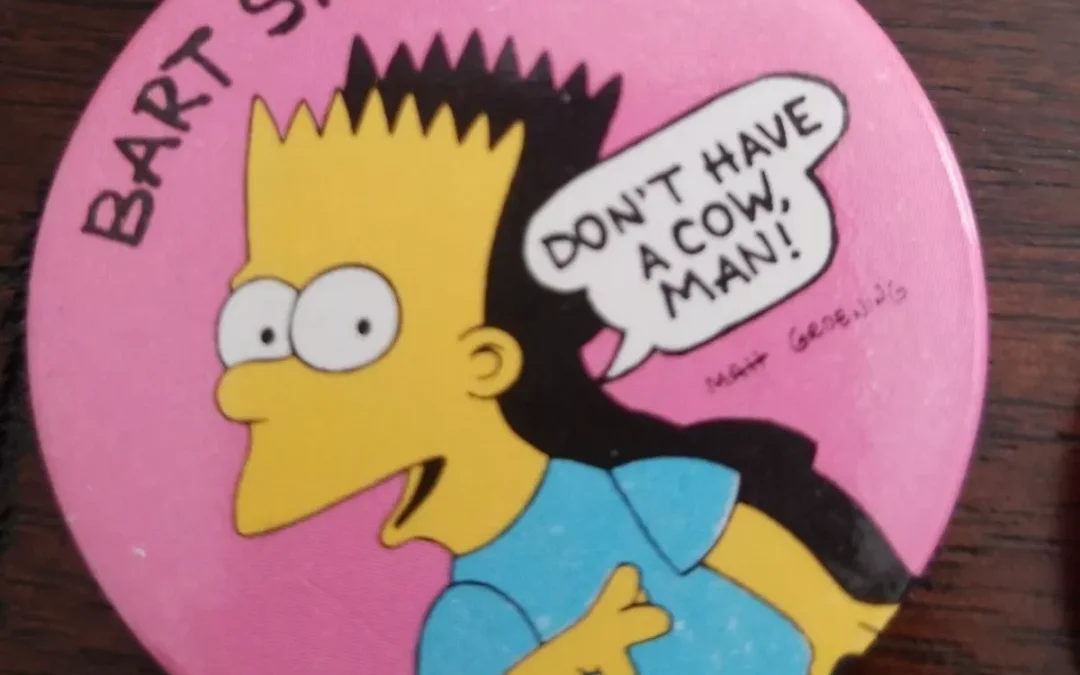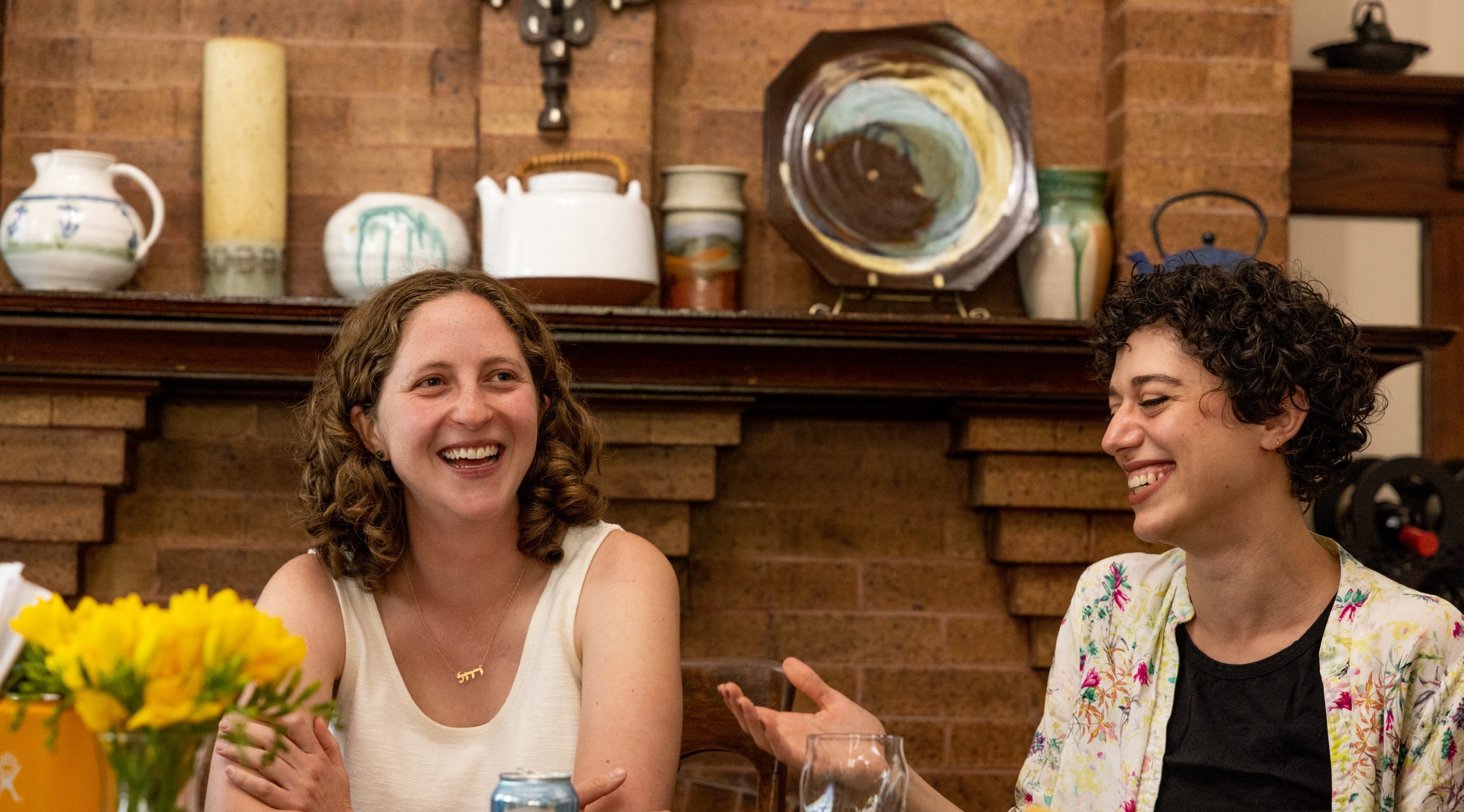Hot Off the Press!
As a child, I was always the kid who loved hanging out with the older kids. I was the oldest child in my family but usually among the youngest in my grade and I liked the company of kids who were capable of so much more. In rabbinical school, I was the one right out of college who preferred my second career classmates. They had so much more life experience and were so much more interesting than my own age peers!
So it may come as no surprise that, although I was born just after the “Boomer” generation, I have been very interested in their experience of approaching old(er) age. And I am delighted that the Institute is adding an important voice to this conversation: a brand new book by Rabbi Rachel Cowan and Dr. Linda Thal, called Wise Aging: Living with Joy Resilience and Spirit.
This book is truly a delight. Edited by Rabbi Beth Lieberman and published by Behrman House, it is a warm, wise and often humorous exploration of the gifts and challenges of growing older. The challenges might be more obvious than the gifts: the changing body, living with loss, confronting mortality. And yet, the gifts that can emerge are marvelous. Consider the possibility of renewing and repairing essential relationships or of developing the capacity to be more joyful, patient and generous. Consider the possibility of really thinking through what kind of legacy we wish to leave and the opportunity to finally bring our lives into greater alignment with how we have always wanted to live.
Aging, if we approach it wisely, gives us the opportunity to integrate all the learning we have done, especially the spiritual learning, regardless of whether we began early or late, so that we can live with greater meaning, less fear, more love.
Rachel and Linda designed the book to be used in Wise Aging Groups, small facilitated groups where these questions can be explored in safe, sacred community. Through our Wise Aging Training Program, we have trained more than 180 facilitators across the country, most of whom are offering Wise Aging groups on a local basis. But even if you don’t live in a community where a group has been formed, pick up the book. It draws you in and helps open the heart.

Don’t Have a Cow (Chukat 5784)
This isn’t a political space and I don’t intend to make it one here. But I also feel a need to talk about politics this week. Wish me luck.
For the last couple of weeks I’ve been experiencing a deep feeling of unease. I have found it hard to focus. I’m more easily distracted than usual. My sleep hasn’t been as good. And it’s not about anything in my personal life–everyone is more or less okay, thank God–or even, at this point, having to do with the situation in the Middle East, which we’ve been living with for too many months.
No, the source of my anxiety is pretty clearly the combined effect of some enormously significant Supreme Court rulings at the end of June and the national conversation that has erupted in the last two weeks around President Biden’s aging and his fitness as both a candidate and holder of his office.
When I sit with it, I find that my anxiety seems to be primarily rooted in both the instability of this moment itself, the prospect of instability in the future, and the powerlessness I experience of living with that instability. It feels like the earth is quaking beneath my feet and there is precious little I can do about it.
The thing is, of course, that that’s not really news–certainly not for many people in the world. While I happen to have been born into a set of conditions that has allowed me to presume a lot of stability (privileges both earned and, probably more often, unearned), so many other people have had a different, more precarious, experience. But this is happening to me now. So here I am, living with my experience.
Again, when I sit with it, I find that what I first really seem to want is just that basic stability. It was so much easier when I felt like I could rely on the idea that some things were settled, that there were big rocks to stand on. In the absence of those big rocks, I sense an impulse–a perfectly natural impulse–to find some other terra firma on which to rest. My mind starts spinning stories about what will happen. Even if they’re unhappy, negative stories, at least they’re rocks.
Chukat is a Torah portion about death and transition. In this Torah portion we read of the deaths of Miriam and Aaron and the transition of the High Priesthood to Aaron’s son, Elazar. Moses, likewise, learns that he will not enter the Promised Land, even as the Israelites make their way to its borders. The times, they are a-changin’: big rocks crumble, uncertainty abounds.
A counterpoint to that uncertainty is the opening section of Chukat, the law of the red heifer, which responds to the destabilizing reality of death through purification. “This is the ritual law that YHVH has commanded,” the Torah says: “Instruct the Israelite people to bring you a red cow without blemish, in which there is no defect and on which no yoke has been laid.”
Why a counterpoint to instability? On one level, because of its simple assertion: As the midrash notes, this is a “chok,” a law without reason (unlike, for instance, the commandment not to steal). Performing it is thus an expression of faith, an affirmation that we do some things because of our commitment.
But I think it’s deeper than that. Rashi, based on the Midrash, suggests that the entire ritual is tikkun, a repair, for the sin of the Golden Calf: “Since they became impure by a calf, let its mother (a cow) come and atone for the calf.” And the impulse to erect the Golden Calf was itself rooted in the dis-ease of living with the unknown: “Come, make us a god who shall go before us,” the people said, “for that fellow Moses—the man who brought us from the land of Egypt—we do not know what has happened to him” (Exodus 32:1). The people’s discomfort at not knowing, their fear of living with uncertainty, prompts them to yearn for something solid: an idol.
We do not perform the ritual of the Red Heifer today, we only read about it. Yet I find that it speaks to me at moments of profound uncertainty, like this one. For me, it’s a reminder to be mindful of how I respond to the very human impulse for stability, to be careful in where I invest that yearning, to be wary of seductive solutions. Because in truth, instability is ever-present. The sands are always shifting beneath our feet–sometimes quicker and more visibly, sometimes slower and less obviously. The Red Heifer is an invitation to live with awareness of that instability, and to respond to it with wisdom, expansiveness, and compassion.

Being With What Is
Being With What Is A Silent Jewish Mindfulness Retreat for Young Adults Tuesday, August 13 – Sunday, August 18, 2024 Wisdom House, Litchfield CT Registration is now closed. Sign up to join Shevet, a weekly Jewish mindfulness sit for young adults. Sign Up for...


